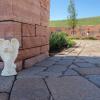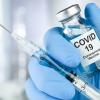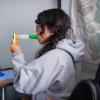Lisa Marshall
 A new systematic review, led by CU Boulder researchers and published by the National Institute of Justice, analyzes 150 studies to provide a framework for preventing school violence.
A new systematic review, led by CU Boulder researchers and published by the National Institute of Justice, analyzes 150 studies to provide a framework for preventing school violence. With ideal conditions and strategic pacing and drafting, Kenyan Faith Kipyegon is on the brink of hitting the fabled track and field milestone, a new study suggests. Now, the authors are urging her to go for it.
With ideal conditions and strategic pacing and drafting, Kenyan Faith Kipyegon is on the brink of hitting the fabled track and field milestone, a new study suggests. Now, the authors are urging her to go for it. Like only about 5% of all mammal species, prairie voles can form long-term bonds with a partner. CU Boulder neuroscientist Zoe Donaldson shares what these critters can teach us about love.
Like only about 5% of all mammal species, prairie voles can form long-term bonds with a partner. CU Boulder neuroscientist Zoe Donaldson shares what these critters can teach us about love. New research shows that women who hit menopause later in life have healthier blood vessels and are less likely to have strokes and heart attacks in their postmenopausal years.
New research shows that women who hit menopause later in life have healthier blood vessels and are less likely to have strokes and heart attacks in their postmenopausal years. Last year, CU Boulder helped to launch a record 35 new companies. These businesses are pioneering new technologies from sensors for monitoring soil health to breathalyzers that can sniff out signs of lung cancer.
Last year, CU Boulder helped to launch a record 35 new companies. These businesses are pioneering new technologies from sensors for monitoring soil health to breathalyzers that can sniff out signs of lung cancer. A new survey of 1,700 people taken in the middle of the COVID-19 pandemic found that people who watched, read or listened to a lot of conservative media were less likely to get vaccinated. But those who mixed outlets like Fox News with other sources across the ideological spectrum didn't show the same tendencies.
A new survey of 1,700 people taken in the middle of the COVID-19 pandemic found that people who watched, read or listened to a lot of conservative media were less likely to get vaccinated. But those who mixed outlets like Fox News with other sources across the ideological spectrum didn't show the same tendencies. Nathan Schneider, who studies how social media platforms are governed, says it’s time for users themselves to take back some power.
Nathan Schneider, who studies how social media platforms are governed, says it’s time for users themselves to take back some power. New CU Boulder research shows that injections of beneficial bacteria can prevent weight gain in animals feasting on a high-fat, high-sugar diet. Scientists hope to bring the specialized probiotic to people in pill form someday.
New CU Boulder research shows that injections of beneficial bacteria can prevent weight gain in animals feasting on a high-fat, high-sugar diet. Scientists hope to bring the specialized probiotic to people in pill form someday. Three years after the freak Dec. 30 blaze destroyed more than 1,000 homes in Boulder County, two new studies offer insight into what happens to air quality and health in the aftermath of urban wildfires.
Three years after the freak Dec. 30 blaze destroyed more than 1,000 homes in Boulder County, two new studies offer insight into what happens to air quality and health in the aftermath of urban wildfires. Scientists at CU Boulder are using a mobile laboratory to collect 1,200 breath samples from cannabis users. The collaboration with the National Institutes of Technology could help lead to a reliable cannabis breathalyzer.
Scientists at CU Boulder are using a mobile laboratory to collect 1,200 breath samples from cannabis users. The collaboration with the National Institutes of Technology could help lead to a reliable cannabis breathalyzer.


